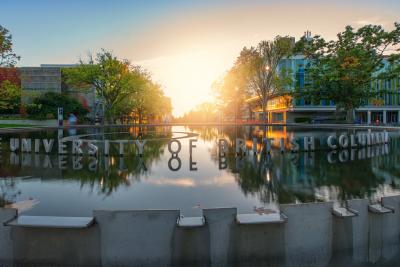Two Projects Selected for Round 2 of Data Science Catalyst Program
January 27, 2025

January 27, 2025

Congratulations to Dr. Kaitlyn Gaynor (Zoology) and Dr. Liang Song (Botany) for being selected in Round 2 of the Data Science Catalyst Program!
Kaitlyn Gaynor, Department of Zoology
This project explores how human activity affects wildlife, particularly in Mozambique's Gorongosa National Park, where large mammals are recovering after civil conflict. Using motion-activated cameras since 2016, the research team tracks animal populations and their response to climate change and human pressures. Through the Data Science Catalyst Program, the team aims to create a database and computer vision tools to process images more efficiently and explore wildlife dynamics and the impact of disturbances like flooding and fires.
Liang Song, Department of Botany
Seeds are vital to both our society and ecosystems, with wild plants and crops differing in how their seeds behave. Wild plants use a strategy to cope with unpredictable environments by having seeds with varying dormancy levels, while crops have been bred for minimal dormancy. Understanding how seeds transition to seedlings is important, especially with climate change and extreme weather patterns. This research focuses on identifying the genetic factors that control seed dormancy and developing tools to predict how these factors work across different plant species.
We honour xwməθkwəy̓ əm (Musqueam) on whose ancestral, unceded territory UBC Vancouver is situated. UBC Science is committed to building meaningful relationships with Indigenous peoples so we can advance Reconciliation and ensure traditional ways of knowing enrich our teaching and research.
Learn more: Musqueam First Nation